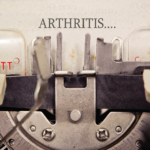Tofacitinib, a JAK inhibitor approved for treating PsA, showed numerical benefits in enthesitis and dactylitis, which could not be tested for statistical significance in the primary clinical trials due to the hierarchical outcome testing procedure.28,29
Knowledge Gaps & Future Developments
Enthesitis measurement remains an area of intense research. Although diagnosis and follow-up are largely clinical due to feasibility considerations, evidence exists that ultrasound and/or MRI assessments have the potential to more directly measure the pathophysiological changes induced by the PsA disease process.12
In clinical trials, only a portion of patients with dactylitis and/or enthesitis responded to the agents noted above. The numbers of new onset and recurrent dactylitis and enthesitis in clinical trials are of great relevance for clinical practice and treatment guidelines, but they are not commonly reported. None of these therapies have been compared in head-to-head analyses, and none have been specifically studied for enthesitis or dactylitis as primary efficacy endpoints. Studies using multiple methods of assessment that capitalize on independently capturing definite underlying pathology in enthesitis and dactylitis are needed to improve our evidence base for treating these PsA-specific manifestations.
Samantha C. Shapiro, MD, completed her training at the Johns Hopkins Division of Rheumatology in June 2018. She is now an attending physician at The University of Texas at Austin, Dell Medical School.
Jemima Albayda, MD, is an assistant professor of medicine and director at the Musculoskeletal Ultrasound and Injection Clinic in the Division of Rheumatology at Johns Hopkins University School of Medicine in Baltimore.
Ana-Maria Orbai, MD, MHS, is an assistant professor of medicine and director of the Psoriatic Arthritis Program in the Division of Rheumatology at Johns Hopkins University School of Medicine in Baltimore.
Disclosures
Dr. Orbai is a Jerome L. Greene Foundation Scholar and is supported in part by a research grant from the National Institute of Arthritis and Musculoskeletal and Skin Diseases (NIAMS) of the National Institutes of Health (NIH) under award number P30-AR070254 (Core B), a Rheumatology Research Foundation Scientist Development award and a Staurulakis Family Discovery award. All statements in this report, including its conclusions, are the opinions of the authors and do not necessarily reflect those of NIH, NIAMS or the Foundation. Dr. Orbai has received research funding from Celgene Eli Lilly, Janssen, Novartis, Horizon and Pfizer. Dr. Orbai was an advisor (Advisory Board participant) for Eli Lilly, Janssen, Novartis, Pfizer and UCB.


